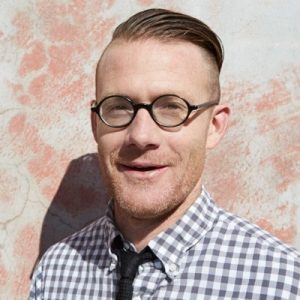Skip to: 01:42 Dyslexia is a learning difference that can present itself in different ways — difficultly reading, spelling, completing math problems — could you explain how you exhibited dyslexia?
What I struggled with most was not the specific academic limitations, those were very real challenges, what I struggled with was the way that I was made to feel stupid and less than because I did not have the so-called ‘normal’ brain.
Skip to: 04:05 In your book, you share the varying views on differences not being deficiencies, but strengths. Can you summarize for our listeners what you’ve witnessed about the gifts and talents of students with differences?
Young people with a-typical brains and bodies are valuable to the world, not despite their differences, but because of them.
There are strengths and talents that come hand in hand with limitations — because of limitations
About 50% of small businesses in America are run by or founded by somebody with a neurological difference.
Skip to: 07:29 Why do you think it’s so important for children with learning differences to have someone advocating for them? How did having these individuals advocating for you impact your education and career?
Skip to: 10:23 How were you able to overcome the trauma of the events in your childhood while also dealing with other challenges at school?
So I’m on a mission to help us elevate the learning experience for some kids; not all, but for some, and see it through the lens of either trauma or empowerment.
So many people with a-typical brains and bodies get the message that they are less than as humans because of their ability status and that leads to folks losing hope for themselves.
Skip to: 13:39 At Brown University, there are no core requirements. Education is based on the individual student. How do you think this model promotes success, and how do you think that this could be mirrored in public education?
When we focus on experiential learning, when we focus on project based learning, when we focus on nurturing and validating individual interest and talent, young folks who historically are challenged do better.
Skip to: 16:52 At the end of your book, you recall a paragraph from The Rejected Body that states, “People with disabilities have experiences, by virtue of their disabilities, which non-disabled people do not have, and which are sources of knowledge that is not directly accessible to non-disabled people.” How do you believe this thinking should or could be incorporated into public education?
Skip to: 21:55 What advice would you give to students and parents?
Different isn’t deficient.
Jonathan Mooney, Author
 Jonathan Mooney is an award winning writer, entrepreneur, and activist who did not learn to read until he was twelve years old.
Jonathan Mooney is an award winning writer, entrepreneur, and activist who did not learn to read until he was twelve years old.
He holds an honors degree from Brown University, is a Harry S. Truman Scholar for Public Service (California, 1999), and was a finalist for a Rhodes scholarship. With the publication of Learning Outside The Lines (now in its 28th printing) when he was 23, Jonathan has established himself as one of the foremost leaders in the nurodiversty and the learning revolution. His second book, The Short Bus: A Journey Beyond Normal was published in the spring of 2007 to outstanding reviews in The New York Times Book Review, The Los Angeles Times, The Chicago Tribune and many other national publications. Both books are considered foundational texts in the disability rights movement, the inclusive education movement, and the learning revolution and are used in under-graduate and graduate program at universities and colleges across the country including Harvard’s Graduate School of Education and Teachers College, Columbia University.
Jonathan’s work has been widely recognized for its innovation and social impact and. In 1999, Jonathan was selected as a Harry S. Truman Scholar for Public Service Truman scholar for public service; in 2000 Jonathan was selected as a finalist for the Rhoads scholarship; and In 2008 Jonathan’s social impact work was recognized by the Lab School of Washington where he shared the stage with the Vice President of the United States, Joseph Biden.
Jonathan Mooney’s Website
Books by Jonathan Mooney
Normal Sucks
The Short Bus: A Journey Beyond Normal
Learning Outside The Lines
